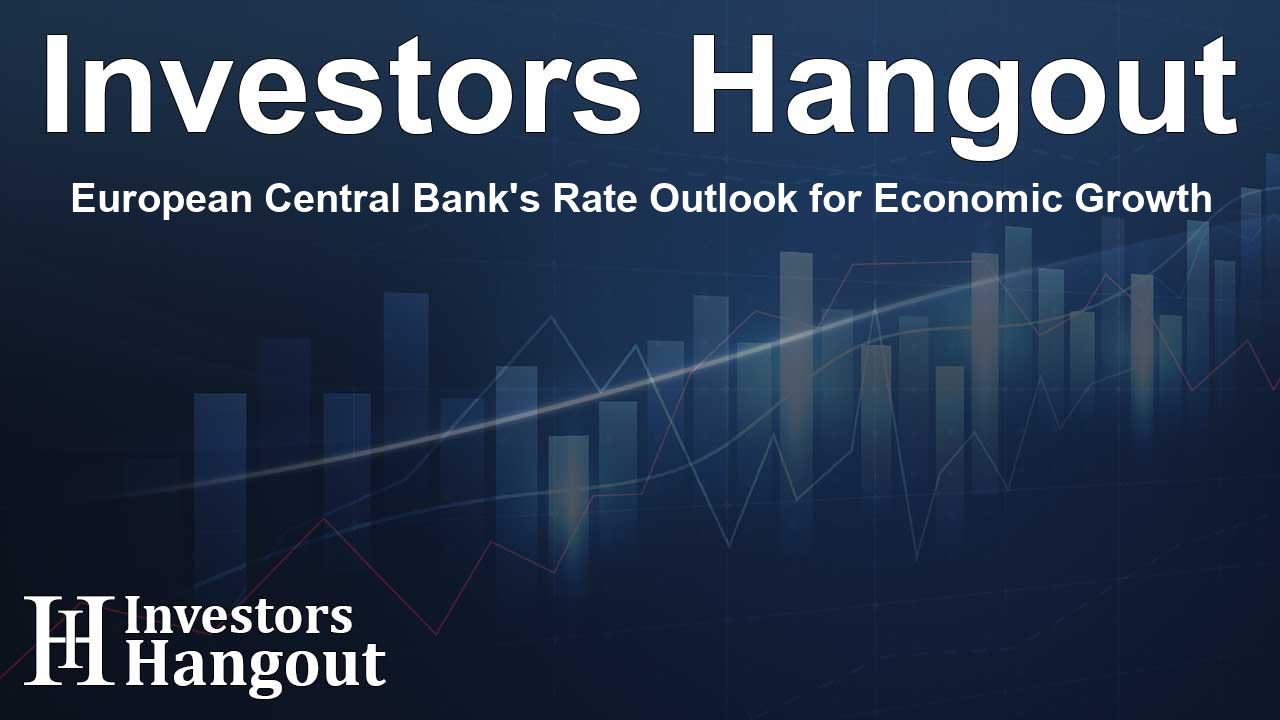European Central Bank's Rate Outlook for Economic Growth

European Central Bank's Striving for Neutral Rate
The European Central Bank (ECB) is currently on track to adjust interest rates, aiming for a level that will not hinder economic growth. According to Francois Villeroy, a key policymaker, this could potentially be achieved by summer, provided inflation trends remain favorable.
Understanding the Neutral Rate Goal
Villeroy highlighted that the primary goal is to reach a neutral interest rate, which the ECB estimates to be approximately 2%. This rate is essential as it represents a balance where monetary policy neither stimulates nor restricts economic growth.
Current Inflation Trends in the Euro Zone
In the past year, inflation within the 20-nation euro zone demonstrated signs of easing, aligning towards the ECB's target of 2%. However, there was a slight increase to 2.4% in December compared to 2.2% in November. Villeroy noted that this uptick was anticipated and does not detract from the overall positive trend.
Expectations for the Future
Villeroy expressed optimism regarding inflation control, stating, "If the pullback in inflation is confirmed in the coming quarters as we expect, common sense would have us heading towards the neutral rate without slowing the pace by summer." This outlook indicates confidence in the ECB's approach to managing inflation and adjusting rates accordingly.
Implications for The Economy
Reaching the neutral interest rate is crucial for stimulating economic activity while stabilizing prices. By aligning interest rates with growth, the ECB aims to foster a favorable economic environment while maintaining price stability.
Key Takeaways
The ECB's strategy reflects a careful balancing act, aiming for a rate that supports growth and keeps inflation in check. With policymakers like Villeroy leading the discussions, the focus remains on achieving these objectives effectively. Overall, as the ECB navigates these waters, the economic landscape in the euro zone may significantly benefit from these strategic adjustments.
Frequently Asked Questions
What is the neutral interest rate defined by the ECB?
The neutral interest rate is identified by the ECB as being around 2%. It signifies a state where monetary policy neither fosters nor limits economic growth.
What recent inflation trend was noted in the euro zone?
As of December, inflation rose to 2.4%, up from 2.2% in November, although this was largely expected within ongoing trends.
Who is Francois Villeroy?
Francois Villeroy is a key policymaker at the European Central Bank and is also the head of the French central bank.
Why is the ECB's interest rate policy important?
The ECB's interest rate policy is crucial as it affects borrowing costs, investment, and overall economic activity within the euro zone.
What can we expect from the ECB in the coming months?
If inflation trends remain consistent, the ECB aims to reach a neutral rate by summer, which would support economic growth moving forward.
About Investors Hangout
Investors Hangout is a leading online stock forum for financial discussion and learning, offering a wide range of free tools and resources. It draws in traders of all levels, who exchange market knowledge, investigate trading tactics, and keep an eye on industry developments in real time. Featuring financial articles, stock message boards, quotes, charts, company profiles, and live news updates. Through cooperative learning and a wealth of informational resources, it helps users from novices creating their first portfolios to experts honing their techniques. Join Investors Hangout today: https://investorshangout.com/
Disclaimer: The content of this article is solely for general informational purposes only; it does not represent legal, financial, or investment advice. Investors Hangout does not offer financial advice; the author is not a licensed financial advisor. Consult a qualified advisor before making any financial or investment decisions based on this article. The author's interpretation of publicly available data presented here; as a result, they should not be taken as advice to purchase, sell, or hold any securities mentioned or any other investments. If any of the material offered here is inaccurate, please contact us for corrections.